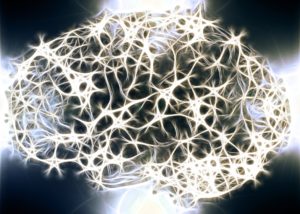
Today's teenagers and their adolescent brains are exposed to numerous pressures. Academics, sports, and extracurricular activities are becoming more and more competitive.
Furthermore, young adolescents are growing up in the era of widespread technology, the vast influence of social media, and more significant tendencies toward stress and anxieties.
Steering through such volatile times with your children can be nothing short of a challenge and prove to be overwhelming. In the face of such pressures, it is just as imperative to provide your children with effective tools to help them make good decisions despite all the hurdles.
Understanding the adolescent brain
On Responsibility is a video series featuring unique leaders in parenting and more, offering thought-provoking and practical advice to parents, sharing skills and tips to help raise responsible teenagers.
In one such video, Dr. Ruben Baler, a Health Scientist at the National Institute on Drug Abuse (NIDA) explains why the adolescent brain is more vulnerable to risks and why it needs to be given more attention.
“Adolescent brain is an extremely vulnerable organ because it is actively programmed and anything that interferes with that programming can yield long-lasting consequences,” explained Dr. Ballard. “That is why it is so different using a drug when you are a teenager than using a drug where you are 28 or 30 years old.”
Important risk factors
Dr. Baler highlights two important risk factors for teen drug abuse: sleep cycle and peer pressure.
Epidemiological research shows that kids who sleep less than eight hours as compared to those who sleep more than eight hours are exposed to a higher risk of mental illness, smoking, aging, unprotected sex, use of marijuana and alcohol consumption.

Similarly, peer pressure is known to play a profound role in early initiation of substance abuse.
Ultimately, Dr. Baler believes that adolescence and this age in itself is a significant factor contributing to substance abuse and other risky behaviors.
“This is how their adolescent brains are built, they are built for seeking novelty, for taking risks, and it is not their fault,” said Dr. Baler.
Responsible parenting
Dr. Baler emphasizes the importance of parents being the foremost purveyors of knowledge for their adolescent children. It is of utmost importance to construct and establish proper channels of communication to navigate your young child’s risk-taking tendencies in a safe way.
TIn regards to teens and poor decision-making, parents need to take the lead in setting examples and create models for what behaviors are desirable and help them attain favorable outcomes.
Dr. Baler reiterates that parents need to supervise their children as much as possible, in the face of an expanding number of toxic influences that can derail the healthy trajectory in their brain development. Parents can most easily notice dramatic shifts in behaviors from the very first signs.
 This is not just regarding substance abuse but could be a psychological problem as well, such as depression, anxiety, the stress of transitioning through middle school, or any other number of things.
This is not just regarding substance abuse but could be a psychological problem as well, such as depression, anxiety, the stress of transitioning through middle school, or any other number of things.
Even though it takes a lot of time and effort to be attuned and stay on top of all these things, Dr. Baler encourages today’s parents to stay attuned and observant.
“I think working in the idea that allowing the kids to know more about their brains, how they develop and how similar the process if brain development is to the process of programming your own computer, I think that’s empowering,” concluded Dr. Baler. “It is a positive avenue for rendering these kids more resilient and protect them.”
Prevention does not just include substance abuse: it is an ongoing process in a child’s life. This process begins at birth with nurturing a brain that develops throughout childhood and into adolescence.
It is crucial to help build resilient pathways through healthy lifestyles, a safe and loving environment, and reliable support system.
References:
- https://www.youtube.com/watch?v=eikCOpF4au8&feature=youtu.be
- https://teens.drugabuse.gov/blog/post/science-starters-conversation-dr-ruben-baler-phd
- https://www.responsibility.org/prevent-underage-drinking/end-teenage-drinking/parenting-teens/
About the Author:
 Sana Ahmed is a journalist and social media savvy content writer with extensive research, print, and on-air interview skills. She has previously worked as staff writer for a renowned rehabilitation institute, a content writer for a marketing agency, an editor for a business magazine and been an on-air news broadcaster.
Sana Ahmed is a journalist and social media savvy content writer with extensive research, print, and on-air interview skills. She has previously worked as staff writer for a renowned rehabilitation institute, a content writer for a marketing agency, an editor for a business magazine and been an on-air news broadcaster.
Sana graduated with a Bachelors in Economics and Management from the London School of Economics and began a career of research and writing right after. Her recent work has largely been focused upon mental health and addiction recovery.
The opinions and views of our guest contributors are shared to provide a broad perspective of addictions. These are not necessarily the views of Addiction Hope, but an effort to offer a discussion of various issues by different concerned individuals.
We at Addiction Hope understand that addictions result from multiple physical, emotional, environmental and genetic factors. If you or a loved one are suffering from an addiction, please know that there is hope for you, and seek immediate professional help.
Published on May 27, 2019
Reviewed by Jacquelyn Ekern, MS, LPC on May 27, 2019
Published on AddictionHope.com
